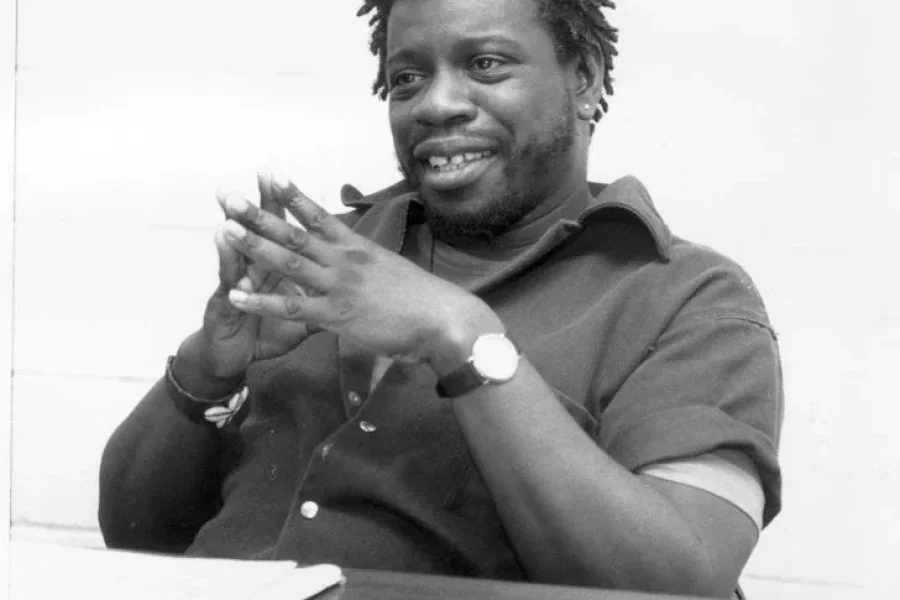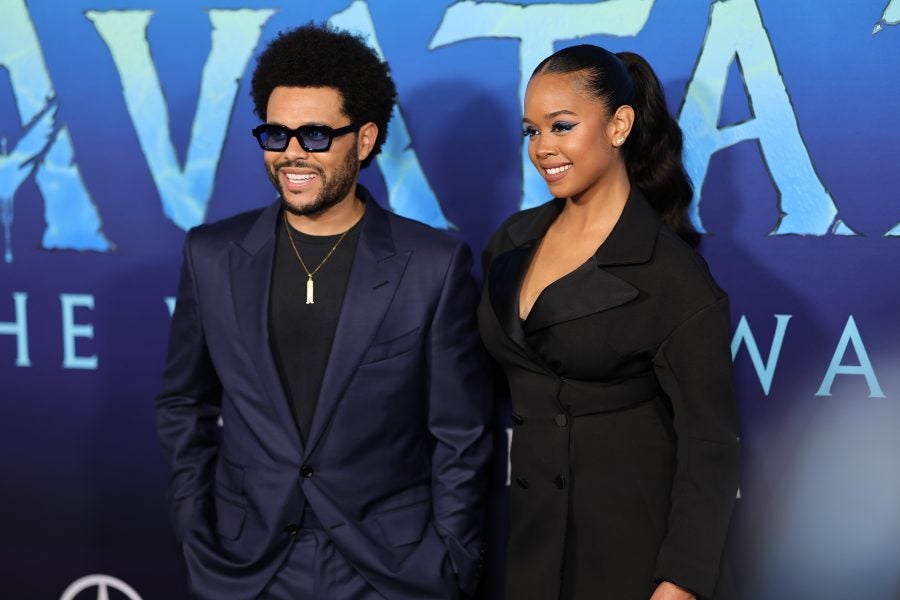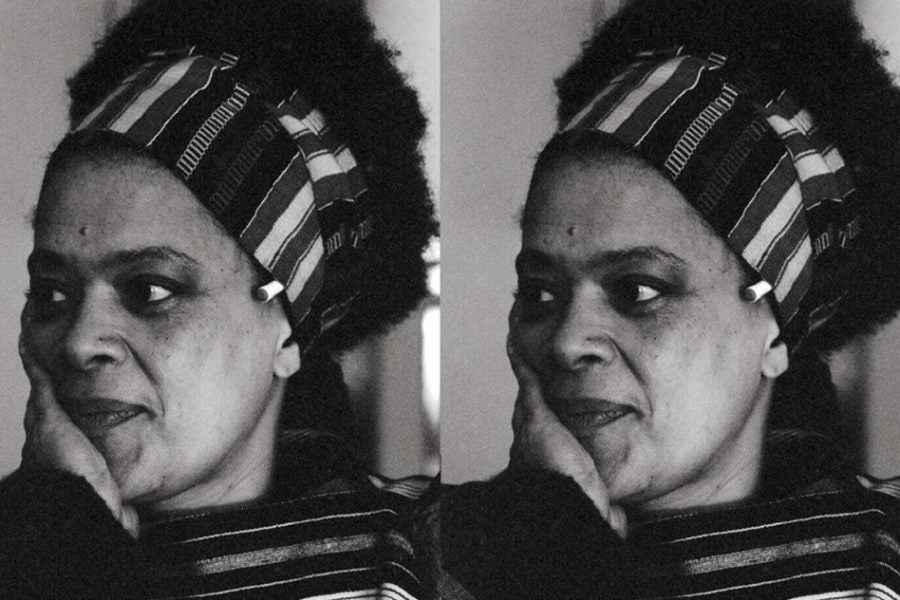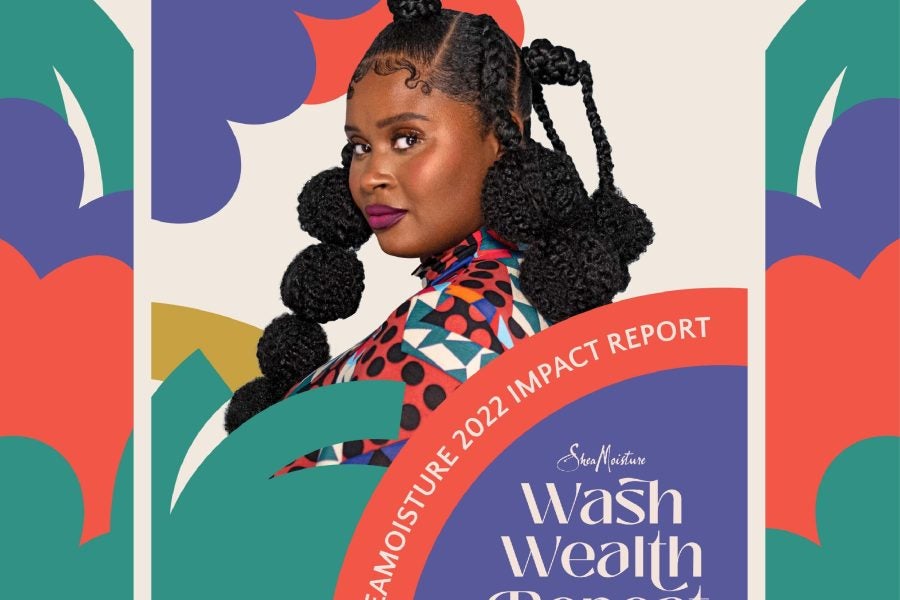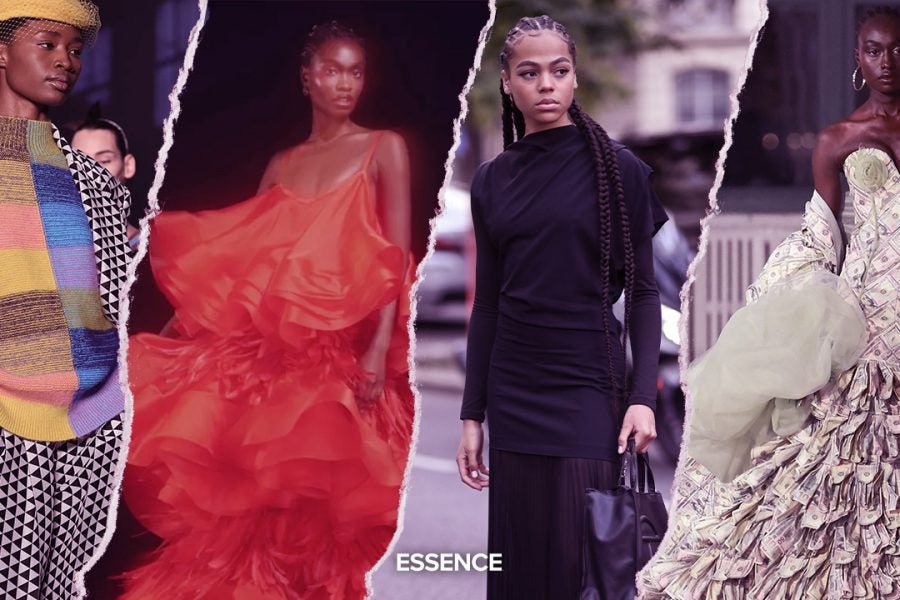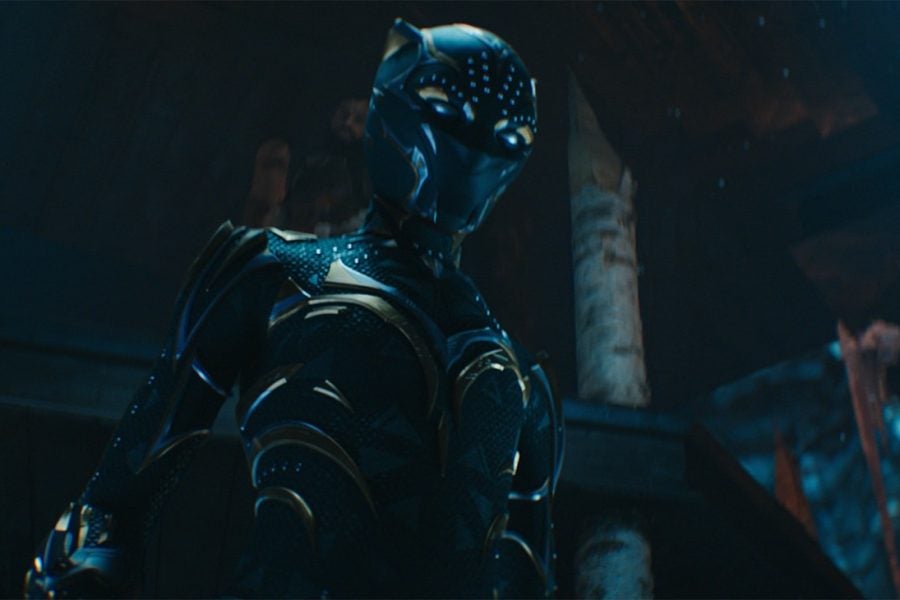
The world was a different place when Black Panther roared into theaters in 2018.
Two years before a global pandemic, racial reckoning, and general societal uncertainty and unrest changed our daily routines and the public consciousness, the 18th film in the Marvel Cinematic Universe was something of a family event for Black Americans in particular. We descended on theaters multiple times in droves, dressed in Afrocentric chic to take in the story of T’Challa and the mythical kingdom of Wakanda.
2018’s Black Panther was lauded for its depiction of Afrofuturism and it’s groundbreakingly Black storyline that examined nationalism, colonialism, radicalism, the grey area that lies between, generational pride and ancestral scrutiny, diasporic unity, and more.
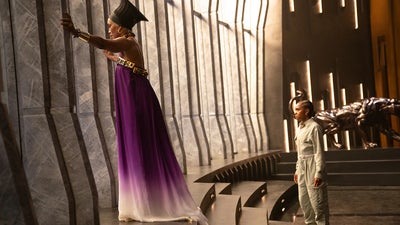
Fast forward to the present, and its long-awaited sequel Wakanda Forever now mirrors and works through the feelings of grief, uncertainty, and looming threats that have become all too common in the real world in the years since Thanos’ big snap.
Wakanda Forever stormed into 4,396 theaters, over 150 Dolby Cinemas, and 405 IMAX screens across the nation last weekend. The film raked in record numbers for a November film premiere and drew out droves of Black Panther fans, many donning all-white to their opening-weekend screenings in a gesture in honor of the film’s late star Chadwick Boseman as a way to “participate” in the character’s on-screen funeral procession.
For the youngest Avengers enthusiasts, the world of Wakanda, and now its sister city under the sea Talokan, exemplifies the magic and wonder superhero stories. Black and brown bodies fly through the air, either with the assistance of high-tech ingenuity or powers bestowed on them at birth. Little Black children get the chance to see young tech geniuses that look just like them, applying their minds to problems that result in them creating innovative weapons, vehicles, and even next-generation Iron Man suits. But for adults, it strikes a different chord.
While Black Panther shattered records and Hollywood norms by creating a superhero blockbuster that centered on the Black experience beyond simply featuring Black protagonists, its emotional sequel Wakanda Forever now sets a new, even more unheard-of precedent in superhero media: a mainstream action story led by and centering Black women.
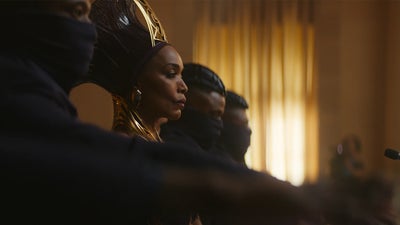
Light spoilers follow:
In the tragic absence of T’Challa, Queen Ramonda (Angela Bassett) is left to rule over Wakanda and defend its resources alone – both of which she does with grace and power. Backed by General Okoye (Danai Gurira) and the rest of the Dora Milaje (notably headlined by Michaela Coel and Florence Kasumba), flanked by her daughter Shuri (Letitia Wright), her son’s former girlfriend Nakia (Lupita Nyong’o) and American tech wunderkind Riri Williams (Dominique Thorne), The Queen and her supporters lead the defense against new threats from existing world powers and a secret underwater society with its eyes fixed on world domination.
Left without their protector, the women of Wakanda lean on one another and hold their nation up and together amid threats coming from several angles. This leads to a breakout performance from Wright, who takes over as the film protagonist and whose character eventually takes up her late brother’s mantle, all while navigating the various stages of her own mounting personal grief, stuck longest in the phase of anger.
That grief, an in-story mirror of the real-life loss of Boseman amid a private battle with colon cancer, was included by the film’s writer/director Ryan Coogler by design, as a catharsis for the audience.
“Grief can be an isolating thing,” Coogler told ESSENCE in a recent interview. “But it was clear to us that what we were going through was kind of happening to everybody on an analogous level. I lost a friend and a collaborator who means a lot to me. Other people have been through something like that as well. And then, on a societal level, we were being affected by COVID. It made sense to lean into that emotion.”
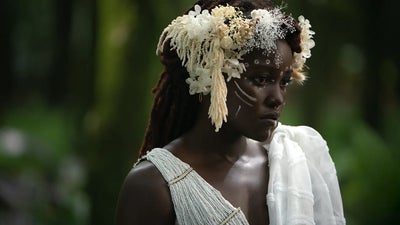
And Coogler’s goal was certainly accomplished. Social media has been flooded with posts about the lengthy cathartic “ugly cry” this film has led viewers to release in the days since its premiere, with a particularly heartstring-pulling post-credit scene opening the emotional floodgates.
Bigger than a typical Marvel superhero film with our heroes facing an otherworldly enemy set on world domination, Wakanda Forever is a meditation on how grief shifts and alters those left behind to deal with it, and the winding road to healing after tragedy. It shows Black women taking on the mantles of leader and warrior as well as nurturer and caregiver when there is no choice but to handle it all.
Closing out Marvel’s fourth phase and ushering in a new chapter in the story of Wakanda without the film’s beloved star, it’s a cathartic release for Marvel fans – perhaps some of the most notably emotive at the theater – to mirror Shuri’s relief and release in the film’s final scene, burning her funeral attire at long last. Audiences are invited to fully feel and finally let go of the pain and move on to hope for a brighter tomorrow.

